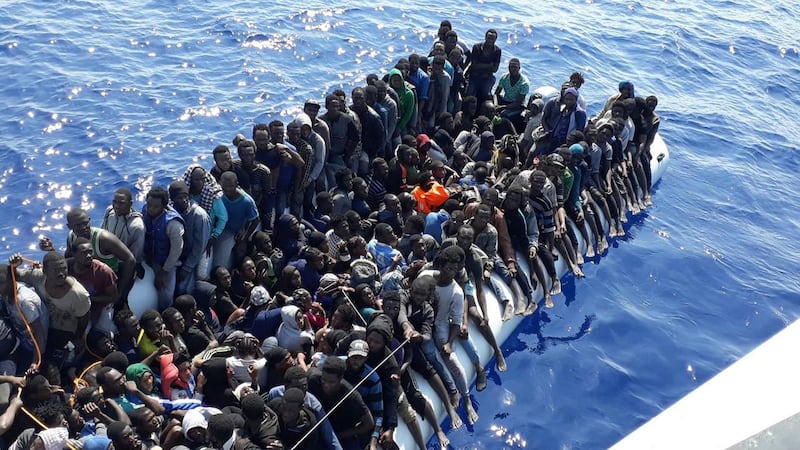More than 100 migrants died in early September when their crowded rubber boats were wrecked off the coast of Libya, the Medecins Sans Frontieres said on Monday.
MSF quoted survivors as saying the two vessels had set out from the Libyan coast early on September 1, each carrying scores of people, mostly African. One boat's engine failed later that day and the other began to deflate. Some survived by clinging to floating wreckage.
100+ people reportedly died in a shipwreck off the Libyan coast on 1st Sep. Survivors were brought to Khoms, east of #Tripoli, with others intercepted by Libyan coast guard. @MSF provided emergency care to the group, some who had extensive chemical burns.https://t.co/64VgoRFEdU
— MSF Sea (@MSF_Sea) September 10, 2018
A survivor told MSF that “European rescuers" had come by aircraft and thrown life rafts, but migrants remained in the water for hours.
"On our boat, only 55 people survived. Many people died, including families and children. They could have been saved if rescuers had come earlier," MSF quoted the survivor as saying.
Sudanese, Malians, Nigerians, Cameroonians, Ghanaians, Libyans, Algerians and Egyptians were among those on board the vessels.
Many survivors were brought to the Libyan port of Khoms on September 2 by the Libyan coastguard, MSF said.
The agency said they faced further ordeals in Libya.
"Many of the survivors are mourning the loss of their relatives," it said. "Instead of receiving the support they need, refugees and migrants are arrested and detained in deplorable living conditions, without basic safeguards or legal recourse."
MSF said it had provided treatment to the group of survivors, which included pregnant women, children and babies, and people with serious medical conditions and chemical burns from the spilled petrol from boat engines.
“We are extremely worried for our patients. How can they recover when they are locked inside cells, in very poor hygiene conditions, and sleeping on blankets or mattresses placed on the floor that cause incredible pain for those suffering from severe burns? Some of them cannot even sit or walk,” said Jai Defranciscis, an MSF nurse.
_______________
Read more:
[ UN slaps sanctions on people smugglers in Libya ]
[ Gunmen storm headquarters of Libyan state oil company ]
[ UN accuses Libyan parliament of subverting political process ]
_______________





